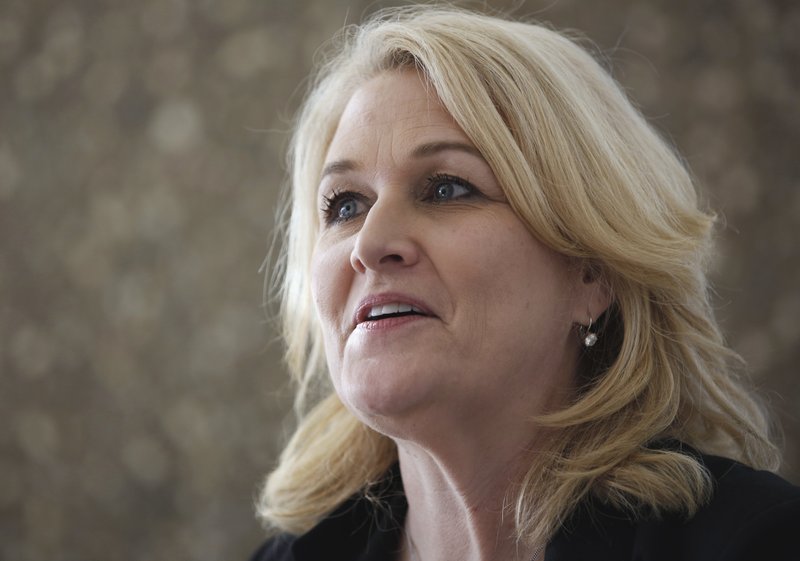CaliforniaŌĆÖs top marijuana regulator talks legalization
LOS ANGELES: CaliforniaŌĆÖs legal pot market opens for business on January 1. The day will be a milestone, but what exactly will happen then and, especially, in the weeks and months to come is unclear.
Lori Ajax is the stateŌĆÖs top pot regulator and has been at the center of the effort to establish rules for a legal pot economy valued at $7 billion.
HereŌĆÖs her thoughts on what to expect:
Question. ItŌĆÖs a question many people are asking: Can I buy legal pot on Jan. 1?
Answer. Well, maybe.
ŌĆ£You will, in certain areas of the state,ŌĆØ Ajax says.
Businesses are required to have a local permit and a state license to open their doors for recreational sales, and that process has moved slowly.
So far, there is not a consistent pattern in the geography of legal pot.
Kern County, for example, has banned all commercial cannabis activity. But Oakland, Santa Cruz, Shasta Lake and San Diego are among the cities that have embraced it and have licensed operators that will open Jan. 1.
San Francisco is running late getting licenses out, so legal sales there are not expected to start until later that week. In Los Angeles, the city will begin accepting applications to sell recreational pot on Jan. 3, but it could be weeks before any of those shops open for legal sales.
Question. If you can get legal pot on Jan. 1, where can you smoke it?
Answer. First rule, not in public, Ajax says.
Another general guideline: DonŌĆÖt smoke anywhere where tobacco is prohibited.
State law has specific guidelines for where not to light up, and they include being within 1,000 feet (300 meters) of a school or a daycare center when kids are around, or smoking while driving.
However, the state has left it up to local governments to determine if they want to permit onsite consumption at retailers. So it will be city-by-city whether you can buy and light up on the spot.
Question. This is going to be a big transition, transforming the lightly regulated medical industry and the vast illegal market into a legal pot economy. How will it roll out?
Answer. With ups and downs.
ŌĆ£That transition period is going to be an adjustment for a lot of folks,ŌĆØ Ajax says.
The industry ŌĆö medical and illegal ŌĆö has existed for years with little or no regulation. Now, growers and sellers are facing a range of new state and local rules, including hefty new taxes.
Consumers who want to make a purchase will have to check their local rules, which can vary.
The state expects to be visiting businesses, perhaps repeatedly, to help them meet the regulations.
ŌĆ£We have to really work with them,ŌĆØ Ajax says.
Question. Her biggest worry?
Answer. The pace and extent of licensing, because lots of players are needed to make the supply chain work across the state. Cultivators. Distributors. Manufacturers. Testing companies. Retailers.
State licensing only started in December.
Ajax worries if California has ŌĆ£licensed enough people throughout the supply chain, and geographically across the state, so people can continue to do business,ŌĆØ which includes medical and recreational pot. ŌĆ£ThatŌĆÖs something I think about all the time.ŌĆØ
Take distributors that transport cannabis.
ŌĆ£If you donŌĆÖt have enough distributors, if they are the only ones that can transport the cannabis, that would be an issue ... on Day One,ŌĆØ Ajax says.
Question. How tough is enforcement going to be, if you intend to entice businesses into the market?
Answer. For now, more carrot than stick.
ŌĆ£We canŌĆÖt just hit them over the head,ŌĆØ Ajax says. ŌĆ£You work toward educating them and, I think, you go from there.ŌĆØ
ŌĆ£If we have somebody that is causing a public nuisance or a public safety problem, then I do think strong enforcement is necessary. But if you just got somebody trying to comply, and they are completely overwhelmed because they just donŌĆÖt know what to do, then I think thatŌĆÖs our job to then break it down for people.ŌĆØ
She acknowledges the dense regulations can be intimidating.
ŌĆ£A lot of them have never dealt with the state before,ŌĆØ she says. ŌĆ£We want to encourage people that this is the best way for California, to come out of the shadows and be licensed.ŌĆØ
Question. Experts say the new legal economy will struggle if the black market continues to thrive. How does the state intend to persuade illegal operators to come out of the shadows?
Answer. In a word, education.
Ajax says businesses need to know how to get licensed ŌĆö an online application site opened this month ŌĆö and the state should encourage them to do so.
The state also needs to be flexible at first with compliance, she said, as businesses become accustomed to the new system.
ŌĆ£We, as a state, have to show them that this is where you need to be,ŌĆØ she says.






